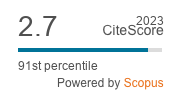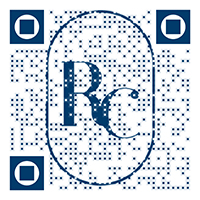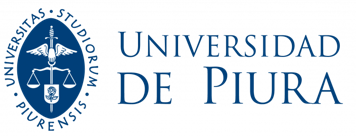Una reflexión sobre la epistemología del fact-checking journalism: retos y dilemas
DOI:
https://doi.org/10.26441/RC19.1-2020-A14Palabras clave:
periodismo, periodismo de verificación, fake news, redes sociales, desinformaciónResumen
El periodismo de verificación o fact-checking journalism ha experimentado un auge en todo el mundo y mayor incidencia en el debate público. Este artículo plantea una reflexión sobre el periodismo de verificación centrada en los retos y dilemas epistemológicos que habiliten cumplir el triple objetivo de este nuevo género periodístico: velar por la veracidad de la información difundida en redes y plataformas sociales, realizar un escrutinio al poder y transformar la información en conocimiento asumible por los ciudadanos. Mediante el análisis de la metodología de medios de verificación iberoamericanos de habla hispana se exponen varias cuestiones ligadas con el proceso de verificación, de difusión y de recepción. Igualmente se analiza el rol del ciudadano en el proceso de verificación y se analiza la disonancia de datos en los dos principales listados de verificación (International Fact-Checking Network y el Duke Reporter’s Lab).
Descargas
Referencias
Allcott, H., & Gentzkow, M. (2017). Social media and fake news in the 2016 election. Journal of Economic Perspectives, 31(2), 211-236. https://doi.org/10.1257/jep.31.2.211 DOI: https://doi.org/10.1257/jep.31.2.211
Amazeen, M. A. (2015). Revisiting the Epistemology of Fact-Checking. Critical Review, 27(1), 1-22. https://doi.org/10.1080/08913811.2014.993890 DOI: https://doi.org/10.1080/08913811.2014.993890
Amazeen, M. A., Thorson, E., Muddiman, A. & Graves, L. (2015). A comparison of correction formats: The effectiveness and effects of rating scale versus contextual corrections on misinformation. American Press Institute. https://www.americanpressinstitute.org/wp-content/uploads/2015/04/The-Effectiveness-of-Rating-Scales.pdf
Bradshaw, S., & Howard, P. N. (2019). The global disinformation order
Global inventory of organised social media manipulation. https://comprop.oii.ox.ac.uk/wp-content/uploads/sites/93/2019/09/CyberTroop-Report19.pdf
Brandtzaeg, P. B., Følstad, A., & Chaparro Domínguez, M. Á. (2018). How journalists and social media users perceive online fact-checking and verification services. Journalism Practice, 12(9), 1109-1129. https:// doi.org/10.1080/17512786.2017.1363657 DOI: https://doi.org/10.1080/17512786.2017.1363657
Coddington, M., Molyneux, L., & Lawrence, R. G. (2014). Fact checking the campaign: How political reporters use twitter to set the record straight (or not). The International Journal of Press/Politics, 19(4), 391-409. https://doi.org/10.1177/1940161214540942 DOI: https://doi.org/10.1177/1940161214540942
Elisabeth, J. (2014). Who are you calling a fact checker? https://www.americanpressinstitute.org/fact-checking-project/fact-checker-definition/
European Commission. (2018). Flash Eurobarometer 464. Fake news and disinformation online. http://ec.europa.eu/commfrontoffice/publicopinion/index.cfm/survey/getsurveydetail/instruments/flash/surveyky/2183
Global Disinformation Index staff. (2019). The quarter billion dollar question: How is disinformation gaming ad tech? https://disinformationindex.org/wp-content/uploads/2019/09/GDI_Ad-tech_Report_Screen_AW16.pdf
Gottfried, J. A., Hardy, B. W., Winneg, K. M., & Jamieson, K. H. (2013). Did fact hecking matter in the 2012 presidential campaign? American Behavioral Scientist, 57(11), 1558-1567. https://doi.org/10.1177/0002764213489012 DOI: https://doi.org/10.1177/0002764213489012
Graves, L. (2017). Anatomy of a fact check: Objective practice and the contested epistemology of fact checking. Communication, Culture & Critique, 10(3), 518-537. https://doi.org/10.1111/cccr.12163 DOI: https://doi.org/10.1111/cccr.12163
Graves, L. (2018). Boundaries not drawn. Journalism Studies, 19(5), 613–631. https://doi.org/10.1080/1461670x.2016.1196602 DOI: https://doi.org/10.1080/1461670X.2016.1196602
Graves, L., & Glaisyer, T. (2012). The fact-checking universe in spring 2012. New America Foundation, 22.
Grinberg, N., Joseph, K., Friedland, L., Swire-Thompson, B., & Lazer, D. (2019). Fake news on twitter during the 2016 US presidential election. Science, 363(6425), 374-378. https://doi.org/10.1126/science.aau2706 DOI: https://doi.org/10.1126/science.aau2706
Han, B. (2014). Psicopolítica: Neoliberalismo y nuevas técnicas de poder. Herder Editorial. DOI: https://doi.org/10.2307/j.ctvt7x7vj
Han, B. (2016). Sobre el poder. Herder Editorial.
Humprecht, E. (2019). How Do They Debunk “Fake News” A Cross-National Comparison of Transparency in Fact Checks. Digital Journalism. https://doi.org/10.1080/21670811.2019.1691031 DOI: https://doi.org/10.1080/21670811.2019.1691031
Klemperer, V. (2001). LTI. la lengua del tercer Reich. Minúscula.
Lewandowsky, S., Ecker, U. K., & Cook, J. (2017). Beyond misinformation: Understanding and coping with the “post-truth” era. Journal of Applied Research in Memory and Cognition, 6(4), 353-369. https://doi.org/10.1016/j.jarmac.2017.07.008 DOI: https://doi.org/10.1016/j.jarmac.2017.07.008
Magallón Rosa, R. (2019). Verificado México 2018: Desinformación y fact-checking en campaña electoral. Revista De Comunicación, 18(1), 234-258. https://doi.org/10.26441/rc18.1-2019-a12 DOI: https://doi.org/10.26441/RC18.1-2019-A12
Mitchell, A., Gottfried, J., Stocking, G., Walker, M. & Fedeli, S. (5 de junio del 2019). Many Americans say made-up news is a critical problem that needs to be fixed. https://www.journalism.org/2019/06/05/many-americans-say-made-up-news-is-a-critical-problem-that-needs-to-be-fixed/
Newman, N., Fletcher, R., Kalogeropoulos, A., & Kleis Nielsen, R. Digital news report 2019. Reuters Institute.
Nyhan, B., & Reifler, J. (2014). The effect of fact-checking on elites: A field experiment on U.S. state legislators. American Journal of Political Science, 59(3), 628-640. https://doi.org/10.1111/ajps.12162 DOI: https://doi.org/10.1111/ajps.12162
Palau-Sampio, D. (2018). Fact-checking y vigilancia del poder: La verificación del discurso público en los nuevos medios de américa latina. Communication & Society, 31 (3), 347-365. https://doi.org/10.15581/003.31.3.347-365 DOI: https://doi.org/10.15581/003.31.3.347-363
Rodríguez Pérez, C. (2017). News framing and media legitimacy: An exploratory study of the media coverage of the refugee crisis in the European Union. Communication & Society, 30 (3), 169-184. https://doi.org/10.15581/003.30.3.169-184 DOI: https://doi.org/10.15581/003.30.3.169-184
Rodríguez Pérez, C. (2019). No diga fake news, di desinformación: una revisión sobre el fenómeno de las noticias falsas y sus implicaciones. Comunicación, 40, 65-74. https://doi.org/10.18566/comunica.n40.a05 DOI: https://doi.org/10.18566/comunica.n40.a05
Salaverría, R. (2019). Digital journalism: 25 years of research. review article. El Profesional De La Información, 28 (1). https://doi.org/10.3145/epi.2019.ene.01 DOI: https://doi.org/10.3145/epi.2019.ene.01
Torres, R., Gerhart, N., & Negahban, A. (2018). Epistemology in the era of fake news: An exploration of information verification behaviors among social networking site users. ACM SIGMIS Database: The DATABASE for Advances in Information Systems, 49(3), 78-97. https://doi.org/10.1145/3242734.3242740 DOI: https://doi.org/10.1145/3242734.3242740
Tuñón-Navarro, J., Oleart, Á, & García, L. B. (2019). Actores europeos y desinformación: La disputa entre el fact-checking, las agendas alternativas y la geopolítica. Revista De Comunicación, (18), 245-260. https://doi.org/10.26441/rc18.2-2019-a12 DOI: https://doi.org/10.26441/RC18.2-2019-A12
Ufarte-Ruiz, M., Peralta-García, L., & Murcia-Verdú, F. (2018). Fact checking: Un nuevo desafío del periodismo. El Profesional De La Información, 27(4), 733-741. https://doi.org/10.3145/epi.2018.jul.02 DOI: https://doi.org/10.3145/epi.2018.jul.02
Uscinski, J. E., & Butler, R. W. (2013). The epistemology of fact checking. Critical Review, 25(2), 162-180. https://doi.org/10.1080/08913811.2013.843872 DOI: https://doi.org/10.1080/08913811.2013.843872
Vargo, C. J., Guo, L., & Amazeen, M. A. (2018). The agenda-setting power of fake news: A big data analysis of the online media landscape from 2014 to 2016. New Media & Society, 20(5), 2028-2049. https://doi.org/10.1177/1461444817712086 DOI: https://doi.org/10.1177/1461444817712086
Vázquez-Herrero, J., Vizoso, Á, & López-García, X. (2019). Innovación tecnológica y comunicativa para combatir la desinformación: 135 experiencias para un cambio de rumbo. El Profesional De La Información (EPI), 28(3)- https://doi.org/10.3145/epi.2019.may.01 DOI: https://doi.org/10.3145/epi.2019.may.01
Vizoso, Á, & Vázquez-Herrero, J. (2019). Plataformas de fact-checking en español. características, organización y método. Communication & Society, 32(1), 127-144. https://doi.org/10.15581/003.32.1.127-144 DOI: https://doi.org/10.15581/003.32.1.127-144
Wahl-Jorgensen, K. (2012). The strategic ritual of emotionality: A case study of Pulitzer prize-winning articles. Journalism: Theory, Practice & Criticism, 14(1), 129-145. https://doi.org/10.1177/1464884912448918 DOI: https://doi.org/10.1177/1464884912448918
Wahl-Jorgensen, K. (2019a). Emotions, media and politics. John Wiley & Sons.
Wahl-Jorgensen, K. (2019b). Questioning the ideal of the public sphere: The emotional turn. Social Media + Society, 5(3), 1-3. https://doi.org/10.1177/2056305119852175 DOI: https://doi.org/10.1177/2056305119852175
Walter, N., Cohen, J., Holbert, R. L., & Morag, Y. (2019). Fact-Checking: A Meta-Analysis of What Works and for Whom. Political Communication, 1-26. https://doi.org/10.1080/10584609.2019.1668894 DOI: https://doi.org/10.1080/10584609.2019.1668894
Walter, N., & Murphy, S. T. (2018). How to unring the bell: A meta-analytic approach to correction of misinformation. Communication Monographs, https://doi.org/10.1080/03637751.2018.1467564 DOI: https://doi.org/10.1080/03637751.2018.1467564
Weeks, B. E., & Gil de Zúñiga, H. (2019). What’s Next? Six Observations for the Future of Political Misinformation Research. American Behavioral Scientist, 1-13. https://doi.org/10.1177/0002764219878236 DOI: https://doi.org/10.1177/0002764219878236
Wintersieck, A. L. (2017). Debating the Truth: The Impact of Fact-Checking During Electoral Debates. American Politics Research, 45(2), 304– 331. https://doi.org/10.1177/1532673X16686555 DOI: https://doi.org/10.1177/1532673X16686555
Zimmermann, F. & Kohring, M. (2020) Mistrust, Disinforming News, and Vote Choice: A Panel Survey on the Origins and Consequences of Believing Disinformation in the 2017 German Parliamentary Election, Political Communication. https://doi.org/10.1080/10584609.2019.1686095 DOI: https://doi.org/10.1080/10584609.2019.1686095
Publicado
Número
Sección
Licencia
Revista de Comunicación conserva los derechos patrimoniales de las obras publicadas bajo una licencia Creative Commons 4.0 y permite al autor mantener los derechos patrimoniales sin restricciones.
Esta revista y sus artículos se publican bajo la licencia Creative Commons Atribución-NoComercial-SinDerivadas 4.0 Internacional (CC BY-NC-ND 4.0), por lo cual el usuario es libre de: compartir, copiar y redistribuir el material en cualquier medio o formato, siempre y cuando: dé crédito de manera adecuada, brinde un enlace a la licencia e indique si se han realizado cambios; no use nuestro contenido con propósitos comerciales; y/o remezcle o transforme el material.






 Portal de Revistas de la Universidad de Piura.
Portal de Revistas de la Universidad de Piura.